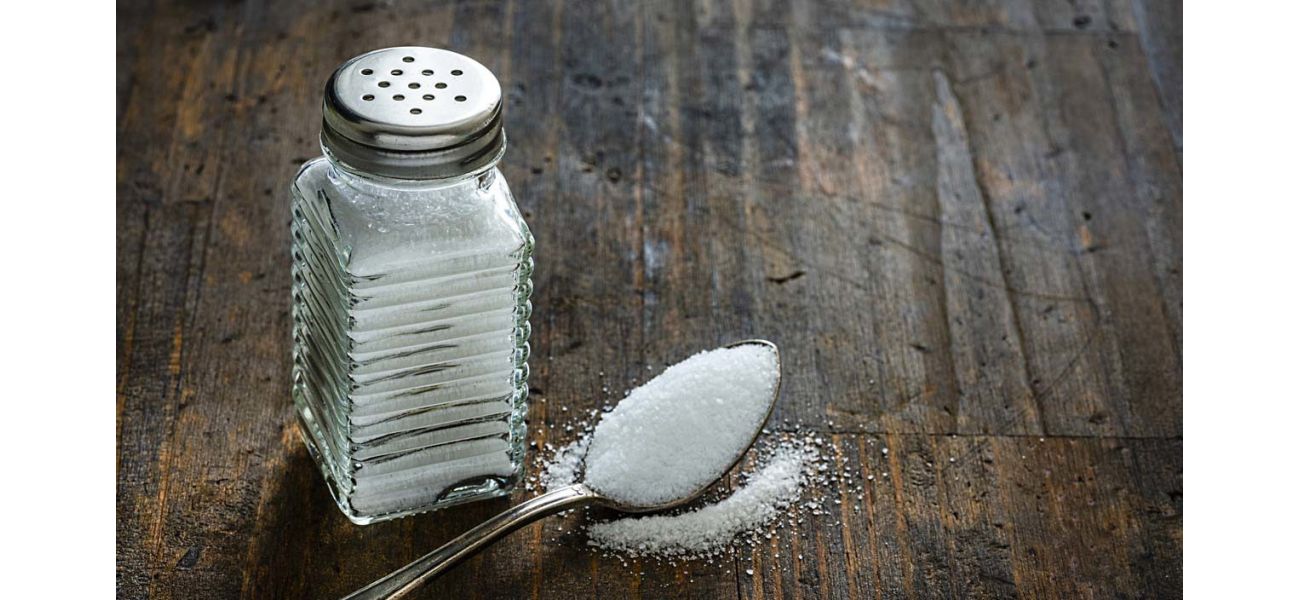Research suggests that requiring lower salt levels in Australian food could prevent 3000 deaths.
Reducing salt in packaged foods in Australia could prevent thousands of deaths and heart attacks over 10 years, study reveals.
October 31st 2024.

Research has revealed that implementing stricter regulations on the amount of salt used in packaged foods in Australia could potentially save up to 3000 lives and prevent approximately 40,000 heart attacks and strokes over a period of ten years. Not only that, but it could also prevent 32,000 new cases of kidney disease and save a staggering $3.25 billion in healthcare costs for these particular illnesses. This groundbreaking study was recently published in The Lancet Public Health and compared the current voluntary standards set by the Australian government to the higher targets recommended by the World Health Organization (WHO).
Professor Jason Wu, Head of Nutrition Science at The George Institute and a professor at UNSW Medicine and Health's School of Population Health, who was also one of the authors of the study, explained the significant impact these stricter regulations could have. "Our research has projected a significant decrease in both cases and deaths from heart attacks, strokes, and other heart-related conditions, as well as kidney disease, within just ten years if the WHO's reduction targets were made mandatory," he stated. "Furthermore, beyond the ten-year mark, we have also shown that this decrease in disease burden could result in billions of dollars in savings from healthcare costs associated with these illnesses."
According to the research, excessive sodium consumption is a major cause of death globally, contributing to the development of cardiovascular disease and chronic kidney disease. In Australia, the average daily intake of sodium is almost double the amount recommended by the WHO. The majority of this sodium comes from foods that may not appear to be high in salt, such as processed meats, bread and bakery products, cereal and grain products, and dairy products, as stated in the study.
The study was led by a team of researchers from The George Institute for Global Health, in collaboration with Griffith University, UNSW Sydney, and Johns Hopkins University. The WHO has set a goal to reduce sodium consumption by 30 percent globally by 2025, and one of their recommendations is for food companies to reformulate their products to lower sodium levels. This is also a key aspect of the Australian Federal Government's Healthy Food Partnership, which was launched in 2015 and urges the food industry to reduce sodium levels in 27 different food categories, among other measures to promote healthy eating.
"Unfortunately, Australia's current sodium reformulation targets remain voluntary, and they are not as strict as the WHO's recommendations," added Professor Wu. "We have observed that the food industry consistently fails to meet these voluntary targets, and this weak regulatory system means that Australia is missing out on a vital opportunity to safeguard its citizens from the harmful effects of consuming excessive amounts of sodium. Other countries, such as Brazil, Mexico, Spain, and Malaysia, have already implemented mandatory sodium limits, proving that it can be done successfully."
Professor Jason Wu, Head of Nutrition Science at The George Institute and a professor at UNSW Medicine and Health's School of Population Health, who was also one of the authors of the study, explained the significant impact these stricter regulations could have. "Our research has projected a significant decrease in both cases and deaths from heart attacks, strokes, and other heart-related conditions, as well as kidney disease, within just ten years if the WHO's reduction targets were made mandatory," he stated. "Furthermore, beyond the ten-year mark, we have also shown that this decrease in disease burden could result in billions of dollars in savings from healthcare costs associated with these illnesses."
According to the research, excessive sodium consumption is a major cause of death globally, contributing to the development of cardiovascular disease and chronic kidney disease. In Australia, the average daily intake of sodium is almost double the amount recommended by the WHO. The majority of this sodium comes from foods that may not appear to be high in salt, such as processed meats, bread and bakery products, cereal and grain products, and dairy products, as stated in the study.
The study was led by a team of researchers from The George Institute for Global Health, in collaboration with Griffith University, UNSW Sydney, and Johns Hopkins University. The WHO has set a goal to reduce sodium consumption by 30 percent globally by 2025, and one of their recommendations is for food companies to reformulate their products to lower sodium levels. This is also a key aspect of the Australian Federal Government's Healthy Food Partnership, which was launched in 2015 and urges the food industry to reduce sodium levels in 27 different food categories, among other measures to promote healthy eating.
"Unfortunately, Australia's current sodium reformulation targets remain voluntary, and they are not as strict as the WHO's recommendations," added Professor Wu. "We have observed that the food industry consistently fails to meet these voluntary targets, and this weak regulatory system means that Australia is missing out on a vital opportunity to safeguard its citizens from the harmful effects of consuming excessive amounts of sodium. Other countries, such as Brazil, Mexico, Spain, and Malaysia, have already implemented mandatory sodium limits, proving that it can be done successfully."
[This article has been trending online recently and has been generated with AI. Your feed is customized.]
[Generative AI is experimental.]
0
0
Submit Comment





